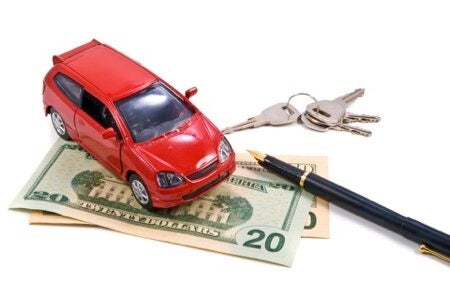
Perhaps you had a lower credit rating when you first bought your car two years ago. Perhaps interest rates were quite high then, and they’re much lower now. Whatever the reason, while it’s not quite as common as refinancing your mortgage, it’s not unusual for people to refinance the loans on their vehicles.
For those participating in the process of credit repair, or those who are happy with their credit score, it may be wise to ask what sort of affect refinancing will have on your credit. In reality, all you are doing is closing an old loan and opening a new one. These two things tend to cancel one another out, which is why refinancing alone won’t affect your credit much.
What will affect your credit, however, is a hard credit inquiry. Whether you go with your old lender or a new one for your new car loan, the potential lender will still need to run a credit check on you, which will lower your score a few points for a short period of time.
Since there are many processing costs associated with opening a new loan (and sometimes with closing an old one, as some lenders charge a fee for “early payoff”), it may not be worth your time to refinance. You should only do this if you expect refinancing to lower your monthly payment a substantial amount or the overall interest paid will be much lower than your current loan.
If you’re just looking to free up some cash monthly, here are a few other things you can do that may be more worth your time than refinancing your vehicle loan:
Refinance your mortgage.
If you closed on your home before the historically low interest rates of the last couple of years, you could be missing out on some savings. While you’ll have to pay new closing costs, they could end up being worth it if your mortgage payment is lowered by several hundred dollars every month.
Consolidate your credit debt.
There are many ways to consolidate your credit debt if it’s spread out among several cards. You can take out a loan with a lower interest rate than your combined credit cards. This can be helpful because your monthly payment amount is preset, so you’ll always know how much to set aside for debt payment. It could also end up saving you a large amount of money in the long run.
Transfer a balance.
If you’re carrying a significant balance on one high-interest credit card, consider opening a different card and transferring your balance to it. Many credit cards offer balance transfers with low or no interest rates for the first 12 to 18 months. This means that if you’re able to pay off the balance in that time period, you’ll pay little-to-no interest, saving yourself potentially thousands of dollars, depending on your balance.
So while it may save you some money to refinance, depending on your circumstances, it may be more worth your while to focus on other types of debt consolidation. For more information on credit repair, visit www.creditrepair.com.
Carry on the conversation on our social media platforms. Like and follow us on Facebook and leave us a tweet on Twitter.






